MAiD
Assisted suicide is never really about ‘choice’: here’s why
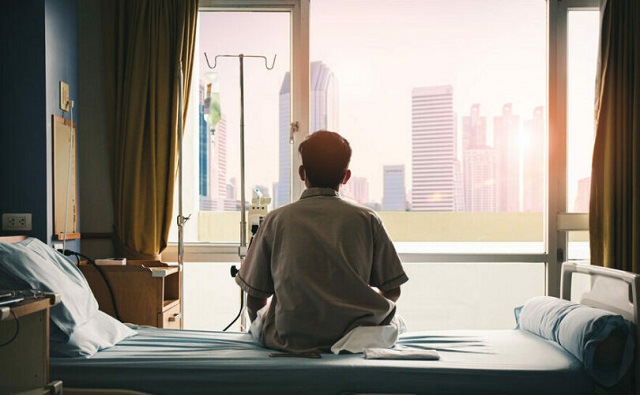
From LifeSiteNews
Just a few years ago, we understood that suicidal ideation itself was an indication that something was seriously wrong – but our euthanasia regime has changed all of that.
Just last week, I wrote a column on the normalization of euthanasia and the sinister insistence by those who advocate for it that being killed by lethal injection is, in fact, both a good and a life-saving thing. We are seeing the complete perversion of language in order to justify medicalized killing, which is why you don’t read terms like “killing” or “suicide” in the context of the euthanasia debate in the press. Activists realized very quickly that these terms were unhelpful in the push for normalization.
Earlier this month, Canadian MP Kevin Lamoureux, a Liberal, took it a step further, stating: “MAiD [assisted suicide] legislation, even on occasion, I would ultimately argue, saves lives.”
🤯🤯🤯🤯🤯🤯🤯🤯 pic.twitter.com/bFU57gKxCJ
— Michelle Ferreri (@mferreriptbokaw) February 12, 2024
What a truly insane thing to say – and the sad fact is, he likely believes it. He also likely doesn’t realize how dangerous his statement is. What message is being sent to those the government has deemed eligible for state-facilitated suicide? Euthanasia is, legally speaking, a choice. But just as with abortion, the “choice” is often a farcical one.
When women were legally granted the “choice” of abortion, it swiftly became an expectation. Sick, sad, and depressed people may be told they merely have the “choice” to be euthanized – but as we have seen, this choice often seems like a social obligation.
This point was made in a recent essay about euthanasia in Newsweek by Katherine Brodsky, who supports euthanasia in principle. She has, however, come to have doubts that a euthanasia regime in which choice is freely exercised is possible. She writes:
I am now skeptical about the true autonomy of individuals opting for assisted death, especially in a country with socialized health care. The risk of medical practitioners recommending MAiD as a cost-cutting measure to alleviate strain on the health care system is unsettling, as suggested by a 2020 analysis estimating potential annual savings of save $66 million annually in health care costs. Individuals considering MAiD are already vulnerable due to physical or mental suffering, making them susceptible to external pressures. Reflecting on my own past struggles, I recognize the unpredictability of emotions and circumstances. What seems unbearable one day may change with time and support – yet the choice to end life is a permanent one.
Fortunately, the Canadian government has delayed – for the second time – expanding euthanasia to those suffering from mental illness. But they insist that this is a delay, not a cancellation, meaning that the position of the Trudeau government is that someone suffering acute despair caused by a mental illness is clear-headed enough to choose suicide-by-doctor. This is obviously untrue, and I genuinely wonder why the government seems so hellbent on doing this. Just a few years ago, we understood that suicidal ideation itself was an indication that something was seriously wrong – but our euthanasia regime has changed all of that.
Brodsky notes that the “choice” being offered to a specific subset of Canadians who have been pre-approved for this “choice” – a choice not offered to all Canadians, but only those the government has decided have lives not worth living – is often a false one. Citing the example of Lauren Hoeve, the Dutch girl who was euthanized earlier this year, she notes:
And yet, I was struck by something in the statement put out by Lauren Hoeve’s parents. ‘Millions of people are affected by ME/CFS, with no established treatment pathways and no cure,’ they wrote on X on Feb. 2. ‘Why is their suffering acknowledged enough for euthanasia but not enough to fund clinical research?’ And herein lies the rub. Why is euthanasia offered as a viable solution to a potentially non-permanent problem, when other options are possible?
Mental health services in Canada (and elsewhere) are scarce. Psychologists are expensive and out of reach for many. Psychiatric services are free of charge, but the wait lists are even longer than those for psychologists and few people can get access. The wait to get help is usually over a year. Family physicians just end up prescribing medications based on a checklist and see what sticks.
READ: Terminally ill children in the Netherlands can now be euthanized against their will
Precisely true. We know that many people in Canada have chosen euthanasia because it was the only “choice” being offered to them at all. Cancer patients who cannot get the treatment they actually want have opted for suicide-by-doctor instead. One woman noted that her requests for additional help to deal with her chronic condition were denied, and thus euthanasia was, she felt, the only option left available. “Ultimately it was not a genetic disease that took me out, it was a system,” she wrote. “There is desperate need for change. That is the sickness that causes so much suffering. Vulnerable people need help to survive. I could have had more time if I had more help.”
So, what does an ill and suffering Canadian hear when an MP stands up in the House of Commons and says that euthanasia “saves lives”? They know it doesn’t save their life. As Amanda Achtman noted: “Obviously, it’s not the lives of those being killed that are being saved. Such a utilitarian calculation amounts to a war against the weak and this is dehumanizing and wrong.”
MAiD
Even Canadian leftists are starting to recognize the ‘dystopian’ nature of MAiD
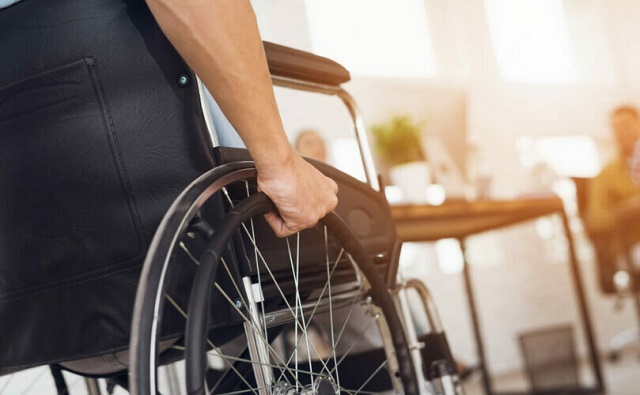
From LifeSiteNews
Euthanasia based on poverty or disability is rarely based on personal choice and autonomy, it is horrifying, it is profane, it is the outcome of a failed social welfare system, and it is indefensible.
David Moscrop wrote an excellent article that was published by Jacobin Magazine on May 2, 2024. Jacobin is an ideologically left magazine, which is concerned about Canada killing people with disabilities and the poor by euthanasia, known as MAiD (Medical Assistance in Dying).
The article begins with this quote:
Canada boasts one of the world’s highest assisted-death rates, supposedly enabling the terminally ill to die with dignity. However, this suicide program increasingly resembles a dystopian replacement for care services, exchanging social welfare for euthanasia.
Moscrop tells the story of Normand Meunier, the quadriplegic man in Québec who died by euthanasia after suffering from horrific neglect. Moscrop writes:
For want of a mattress, a man is dead. That’s the story, in sum, of a quadriplegic man who chose to end his life in January through medically assisted death. Normand Meunier’s story, as reported by the CBC, began with a visit to a Quebec hospital due to a respiratory virus. Meunier subsequently developed a painful bedsore after being left without access to a mattress to accommodate his needs. Thereafter, he applied to Canada’s Medical Assistance in Dying (MAiD) program.
As Rachel Watts writes in her report, Meunier spent ninety-five hours on a stretcher in the emergency room – just hours short of four days. The bedsore he developed ‘eventually worsened to the point where bone and muscle were exposed and visible – making his recovery and prognosis bleak.’ The man who ‘didn’t want to be a burden’ chose to die at home. An internal investigation into the matter is underway.
I find it interesting that the article states that Meunier chose to die by euthanasia when in fact he was put into an untenable situation. Moscrop then reinforces the concerns of the disability community:
Disability and other advocates have been warning us for years that MAiD puts people at risk. They warned that the risk of people choosing death – because it’s easier than fighting to survive in a system that impoverishes people, and disproportionately does so to those who are disabled – is real. Underinvestment in medical care will push people up to and beyond the brink, which means some will choose to die instead of ‘burden’ their loved ones or society at large. They were right.
Moscrop comments on how euthanasia is the outcome of a failed social welfare state:
A libertarian ethos partially underwrote the fact that not many people blinked when MAiD was initially rolled out. Taking a more expansive view of rights, many of those not swayed by rote libertarianism were convinced that concerns over bodily autonomy and compassion were reason enough to adopt MAiD. However, in the absence of a robust welfare state, and in the face of structural poverty and discrimination, particularly toward disabled people, there is no world in which the MAiD program can be understood to be ‘progressive.’
Indeed, last year, Jeremy Appel argued that MAiD was ‘beginning to look like a dystopian end run around the cost of providing social welfare.’ Initially supportive, he changed his mind on MAiD as he considered that the decisions people make are not strictly speaking individual but are instead collectively shaped and sometimes ‘the product of social circumstances, which are outside of their control.’ When we don’t care for one another, what do we end up with?
‘I’ve come to realize,’ wrote Appel, ‘that euthanasia in Canada represents the cynical endgame of social provisioning with the brutal logic of late-stage capitalism – we’ll starve you of the funding you need to live a dignified life [. . .] and if you don’t like it, why don’t you just kill yourself?’
READ: Young, healthy women being euthanized in the Netherlands should be a warning for Canada
Moscrop then comments on that euthanasia for psychiatric reasons has been delayed in Canada based on the lack of mental health care. He refers to the reality as grotesque and writes that this is the stuff of nightmarish science fiction. Moscrop comments on the broken social welfare system in Canada.
In Canada’s most populous province, Ontario, a recipient of disability support receives about $1,300 a month – a pittance they’re meant to stretch to cover food, shelter, and other basic needs. Ontario Works – the province’s welfare program – pays a current maximum of $733 a month. Meanwhile, rental costs for a one bedroom apartment routinely push toward an average of $2,000 a month in many cities. In April, in Toronto, a one bedroom apartment averaged almost $2,500 a month.
Moscrop challenges a statement by euthanasia activists James Downer and Susan MacDonald who stated:
Despite fears that availability of MAiD for people with terminal illness would lead to requests for MAiD driven by socioeconomic deprivation or poor service availability (e.g., palliative care), available evidence consistently indicates that MAiD is most commonly received by people of high socioeconomic status and lower support needs, and those with high involvement of palliative care.
Moscrop replies:
By their own admission, the data on this matter is imperfect. But even if it were, the fact that ‘most’ patients who choose MAiD are better off socioeconomically is beside the point. Some are not – and those ‘some’ are important. That includes a man living with Amyotrophic Lateral Sclerosis who, in 2019, chose medically assisted death because he couldn’t find adequate medical care that would also allow him to be with his son. It also includes a man whose application listed only ‘hearing loss,’ and whose brother says he was ‘basically put to death.’ This story came a year after experts raised the concern that the country’s MAiD regime was in violation of the Universal Declaration of Human Rights.
In 2022, Global News said the quiet part out loud: poverty is driving disabled Canadians to consider MAiD. Those ‘some’ who are driven to assisted death because of poverty or an inability to access adequate care deserve to live with dignity and with the resources they need to live as they wish. They should never, ever feel the pressure to choose to die because our social welfare institutions are starved and our health care system has been vandalized through years of austerity and poor management.
Moscrop then states that Canada has the resources to prevent endemic poverty and provide adequate care, that poor people being euthanized by the state is profane.
Moscrop then refers to a recent article by professor Trudo Lemmens who is a critic of Canada’s euthanasia law.
In a February piece for the Globe and Mail, University of Toronto law professor Trudo Lemmens wrote, ‘The results of our MAiD regime’s promotion of access to death as a benefit, and the trivialization of death as a harm to be protected against, are increasingly clear.’ In critiquing MAiD’s second track, which allows physician-assisted death for those who do not face ‘a reasonably foreseeable death,’ Lemmens points out that within two years of its adoption, ‘“track two”’ MAiD providers had ended already the lives of close to seven hundred disabled people, most of whom likely had years of life left.’
In raising concerns about expanding MAiD to cover mental illness, Lemmens added that ‘there are growing concerns that inadequate social and mental health care, and a failure to provide housing supports, push people to request MAiD,’ noting that ‘[a]dding mental illness as a basis for MAiD will only increase the number of people exposed to higher risks of premature death.’
Moscrop continues by referring to a commentary from disability leader Gabrielle Peters.
In 2021, Gabrielle Peters warned in Maclean’s that extending MAiD to cover those who weren’t facing an immediately foreseeable death was ‘dangerous, unsettling and deeply flawed.’ She traced the various ways in which a broader MAiD law could lead to people choosing to die in the face of austerity, adding an intersectional lens that is often missing from our discussions and debates over the issue.
She warned that we were failing to consider ‘how poverty and racism intersect with disability to create greater risk of harm, more institutional bias and barriers, additional layers of othering and dehumanization, and fewer resources for addressing any of these.’ And now here we are. We should have listened more carefully.
Moscrop ends his article by suggesting that euthanasia may be OK based on personal choice but it is indefensible when it is based on poverty.
While MAiD may be defensible as a means for individuals to exercise personal choice in how they live and how they die when facing illness and pain, it is plainly indefensible when state-induced austerity and mismanagement leads to people choosing to end their lives that have been made unnecessarily miserable. In short, we are killing people for being poor and disabled, which is horrifying.
It thus falls to proponents of MAiD to show how such deaths can be avoided, just as it falls to policymakers to build or rebuild institutions that ensure no one ever opts to end their life for lack of resources or support, which we could provide in abundance if we choose to.
I agree with most of Moscrop’s comments but I disagree with his statement that euthanasia is possibly defensible as a means of individuals exercising personal choice. Even though people with disabilities experience social devaluation in Canada, they may be still exercising personal choice when they ask to be killed.
The problem with modern writers is that they miss the fact that euthanasia is about killing people. Even if Canada had a greater level of equality, there would be people who ask to be killed based on their poverty or their concerns about homelessness.
The real concern is that Canada has given medical professionals the right in law to kill their patients. This is about people killing people.
Nonetheless Moscrop is right that euthanasia based on poverty or disability is rarely based on personal choice and autonomy, it is horrifying, it is profane, it is the outcome of a failed social welfare system, and it is indefensible.
Reprinted with permission from the Euthanasia Prevention Coalition.
International
28-year-old Dutch woman to be killed by assisted suicide after doctors deem her autism ‘untreatable’
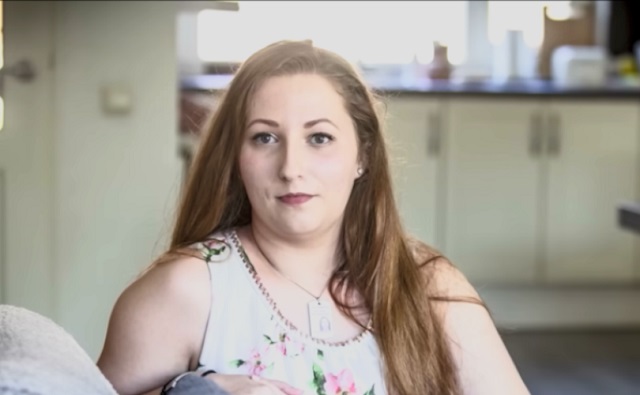
28-year-old Dutch woman Zoraya ter Beek (YouTube Screenshot)
From LifeSiteNews
28-year-old Zoraya ter Beek plans to die by assisted suicide over her struggles with depression and mental illness, a trend which is increasing in The Netherlands.
A 28-year-old autistic woman is scheduled to die by assisted suicide in May in The Netherlands after struggling with depression and mental illness, with her psychiatrist telling her that her condition is untreatable and will never improve.
Zoraya ter Beek, who does not suffer from any physical illness, has decided to end her life by assisted suicide after psychiatrists said they had exhausted any means of helping her deal with her mental illnesses, which includes borderline personality disorder, according to The Free Press.
Her struggles with mental illness have prevented her from being able to finish school or start a career.
READ: Canadian judge blocks imminent euthanasia death of 27-year-old autistic woman
In testimony to the nihilistic attitude adopted in the choice to end her own life on account of suffering, Ter Beek has decided that after she has been killed, her body will be cremated without a funeral and her ashes scattered in the woods.
Ter Beek’s choice to take her own life comes despite her admitted fear of death arising from the uncertainty of what happens after death.
“I’m a little afraid of dying, because it’s the ultimate unknown,” she said. “We don’t really know what’s next – or is there nothing? That’s the scary part.”
The diagnosis of autism and mental illness as “untreatable” and “unbearable” has become an increasing trend in The Netherlands, with a study published in June 2023 revealing 40 cases over a 10-year period from 2012 to 2021. In a third of those cases, those with autism or intellectual disabilities were told there was no hope of improving their lives, and so their condition was deemed “untreatable.”
READ: Autistic people in the Netherlands are being euthanized: report
Irene Tuffrey-Wijne, a palliative care physician at Britain’s Kingston University, who led the study which examined 900 cases, said, “There’s no doubt in my mind these people were suffering. But is society really OK with sending this message, that there’s no other way to help them and it’s just better to be dead?”
Tim Stainton, director of the Canadian Institute for Inclusion and Citizenship at the University of British Columbia, added, “Helping people with autism and intellectual disabilities to die is essentially eugenics.”
The scheduled killing of the 28-year-old autistic woman comes as The Netherlands continues to expand the scope of what legally qualifies for euthanasia, with a new law effective February 1 allowing the killing of terminally ill children aged 1 through 12 who are deemed to be “suffering hopelessly and unbearably.”
The law allows parents to decide to kill their child even if the child is unwilling or unable to consent.
-
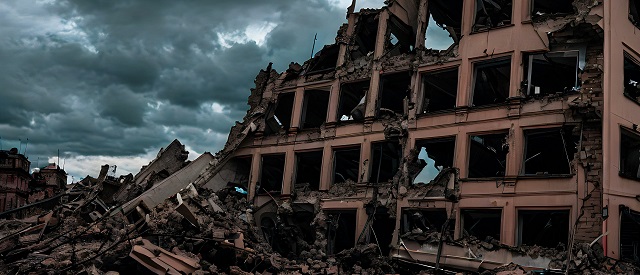
 conflict1 day ago
conflict1 day agoWhite House Reportedly Worried About Russia’s Sudden Momentum Months After Biden Declared Putin ‘Already Lost’ War
-
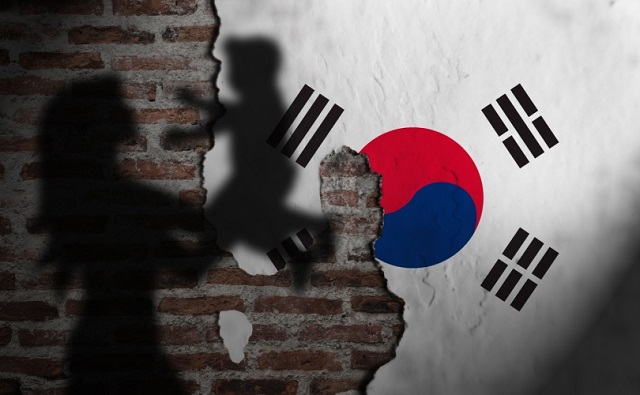
 Health2 days ago
Health2 days agoSouth Korean president declares low birth rate a ‘national emergency,’ plans new ministry to address it
-

 Alberta2 days ago
Alberta2 days agoFortis et Liber: Alberta’s Future in the Canadian Federation
-
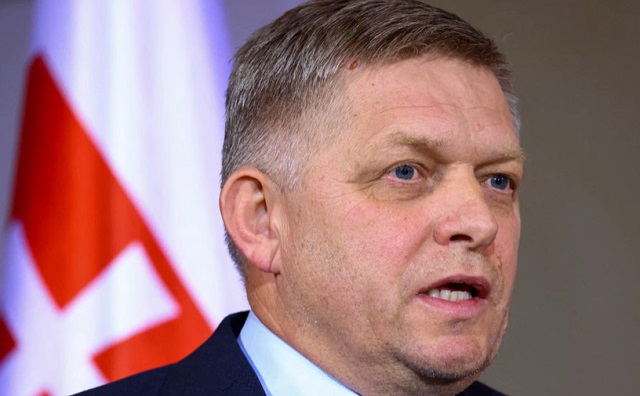
 Crime2 days ago
Crime2 days agoSlovakian prime minister who opposed WHO Pandemic Treaty shot in assassination attempt
-

 Crime20 hours ago
Crime20 hours agoThe US Canadian border: Greatest number of terrorist watch list individuals being apprehended at northern border
-

 COVID-1924 hours ago
COVID-1924 hours agoNIH Quietly Altered Definition For Gain-Of-Function Research On Its Website, Former Fauci Aide Confirms
-
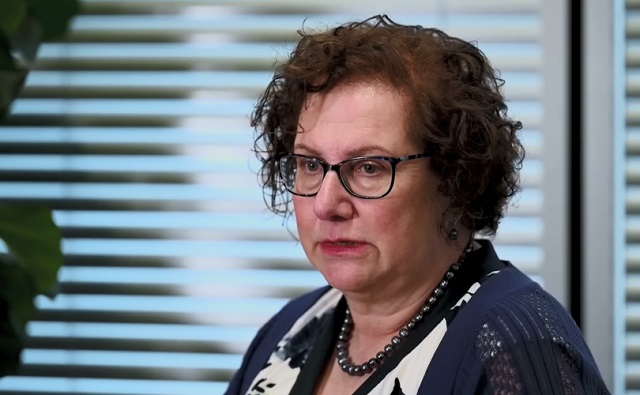
 Health2 days ago
Health2 days agoUK pediatrician who led review of child ‘transitions’ says US medical groups ‘misleading the public’
-
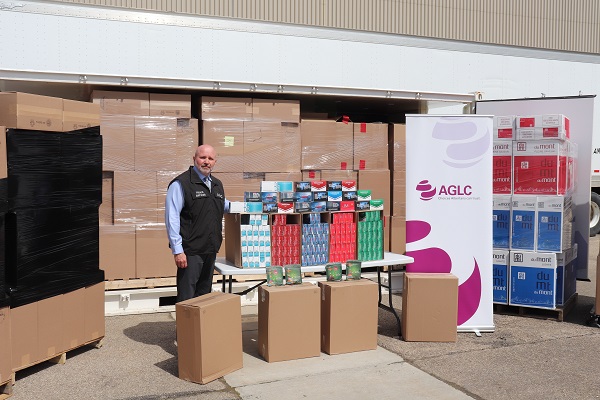
 Alberta2 days ago
Alberta2 days ago30 million contraband cigarettes valued at $25 million dollars seized in Alberta








